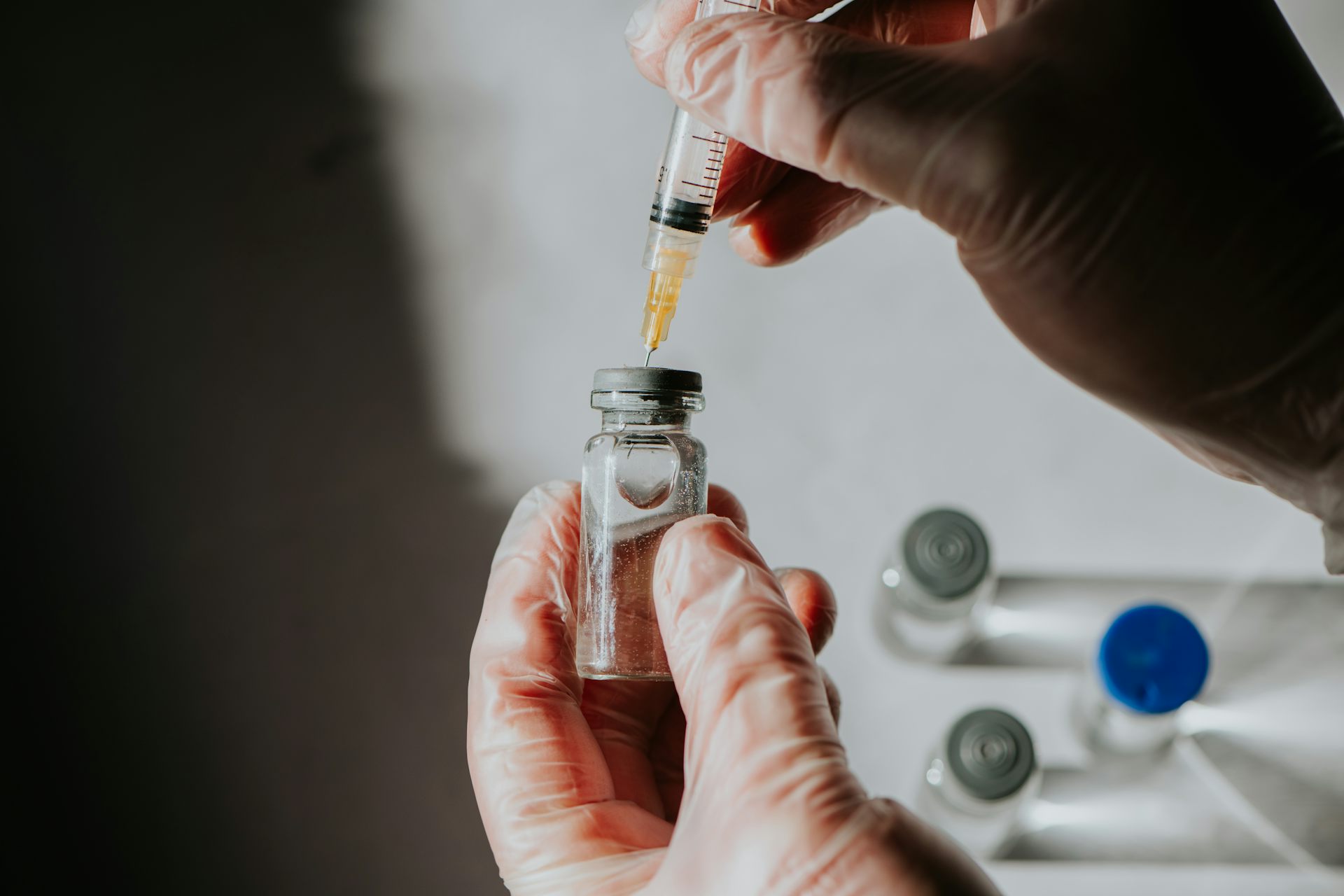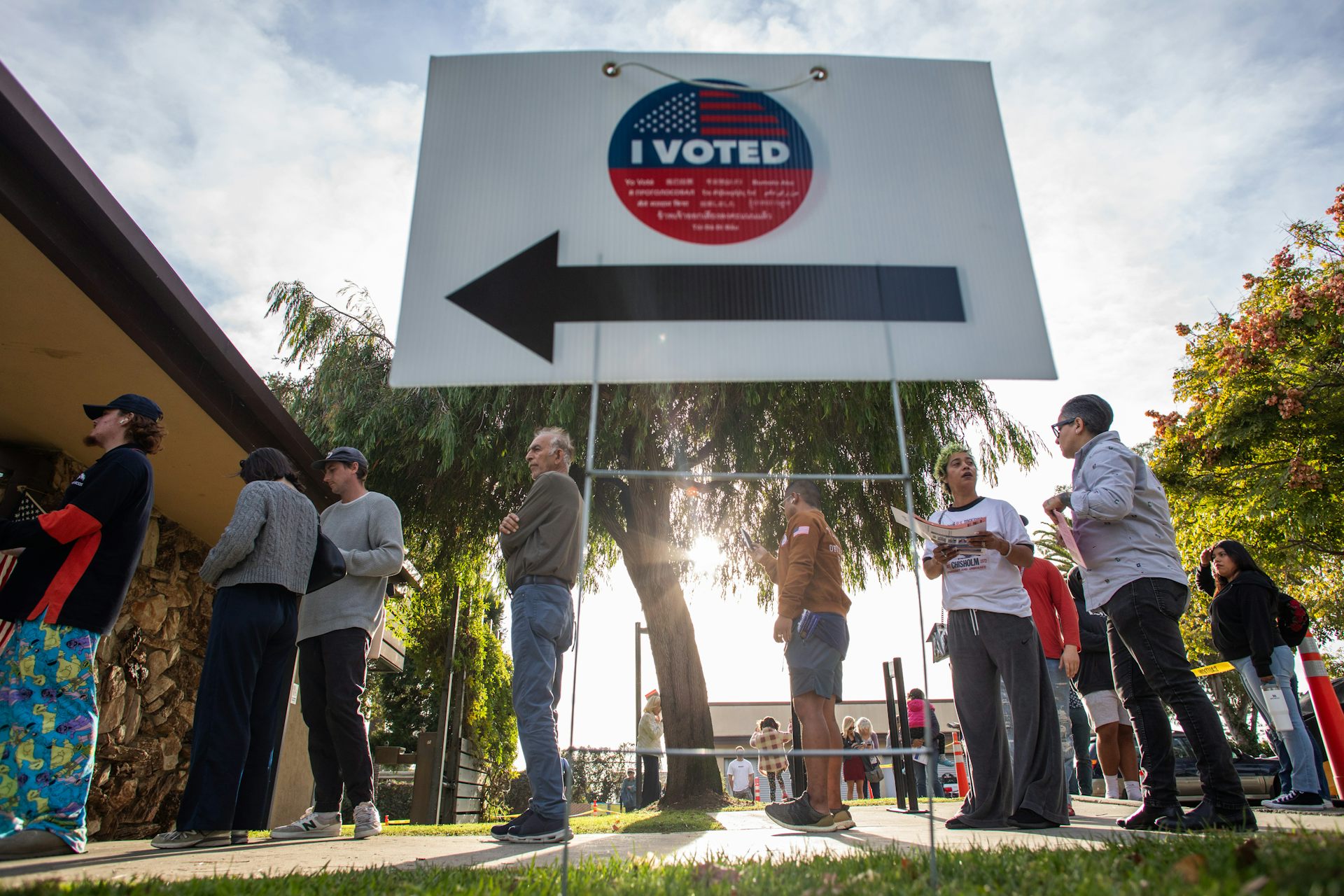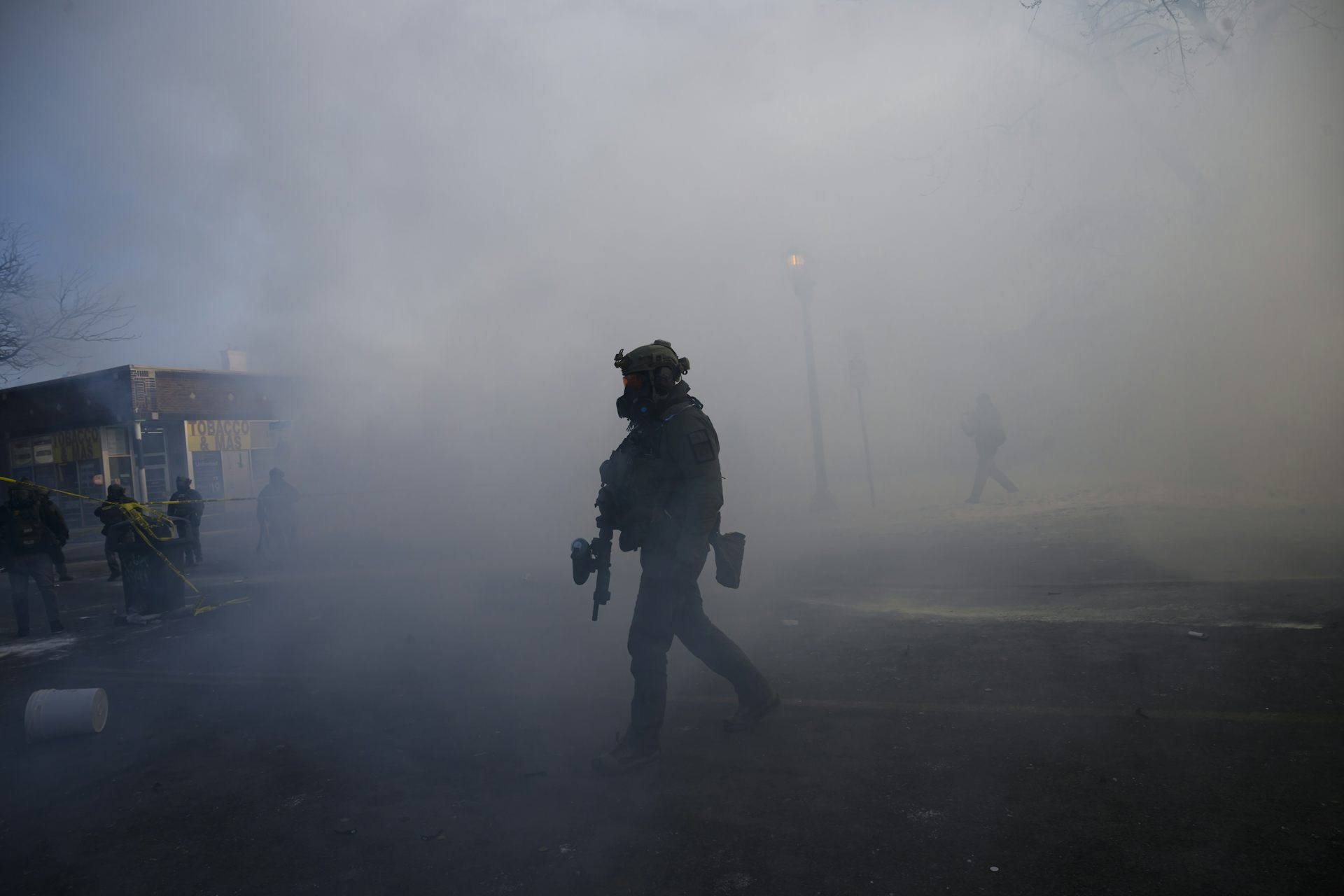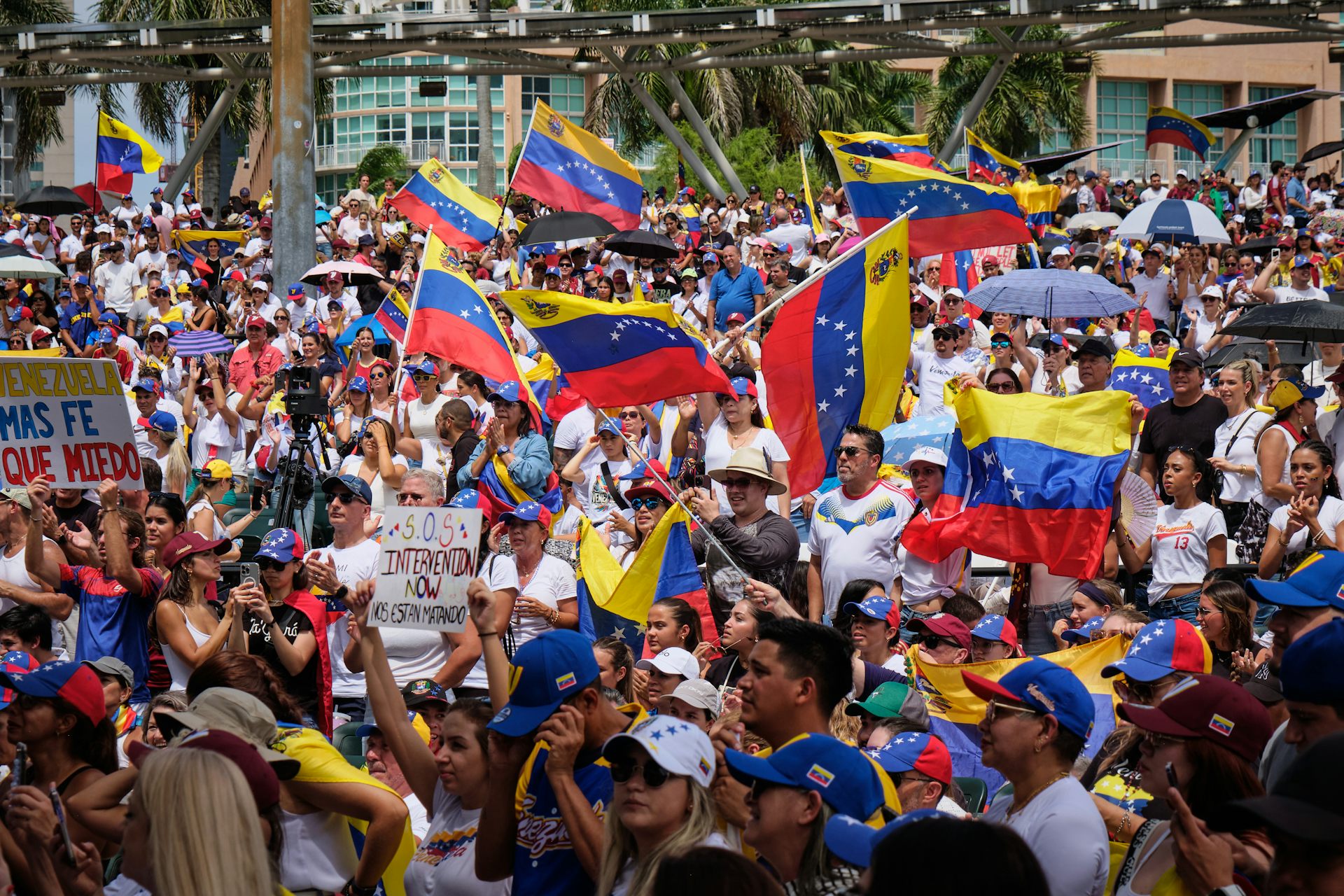Trump’s anti-Venezuela actions lack strategy, justifiable targets and legal authorization
President Trump OK’d a naval buildup in the Caribbean, strikes on boats in international waters and covert operations in Venezuela. A military analyst can’t see a coherent strategy or objective.
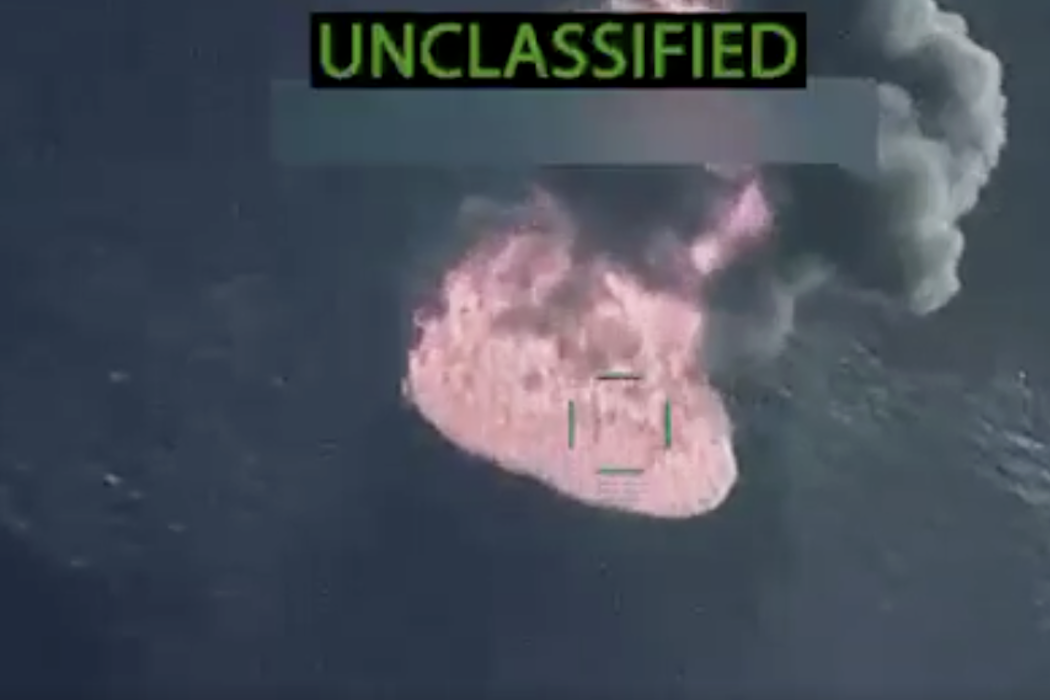
“I think we’re just going to kill people that are bringing drugs into our country. OK? We’re going to kill them. You know, they’re going to be, like, dead,” President Donald Trump said in late October 2025 of U.S. military strikes on boats in the Caribbean Sea north of Venezuela.
The Trump administration asserted without providing any evidence that the boats were carrying illegal drugs. Fourteen boats that the administration alleged were being operated by drug traffickers have been struck, killing 43 people.
On Oct. 24, the administration began a substantial military buildup in the region. The Pentagon moved the aircraft carrier USS Gerald R. Ford and some of its strike group, along with several other naval ships, to the Caribbean and moved F-35 fighter jets to Puerto Rico. This is the largest U.S. naval deployment in the Caribbean Sea since the Cuban missile crisis in 1962.
According to the White House, the naval buildup and strikes on boats in international waters are part of counternarcotics operations. The vessels targeted allegedly belonged to Venezuelan drug smugglers, though the administration has produced no evidence that there were drugs on the boats, or what type. Trump has named fentanyl as one of them.
At times the president and some of his advisers have referred to the operators and occupants of the boats as “narco-terrorists.” But they have offered no explanation why the people would be considered terrorists.
The president and his advisers’ own words have also indicated that the larger intentions of the administration could be to topple the government of Nicolás Maduro in Venezuela.
But as a former political-military analyst and former senior adviser at the Department of Defense, I find it hard to discern a coherent strategy or objective.
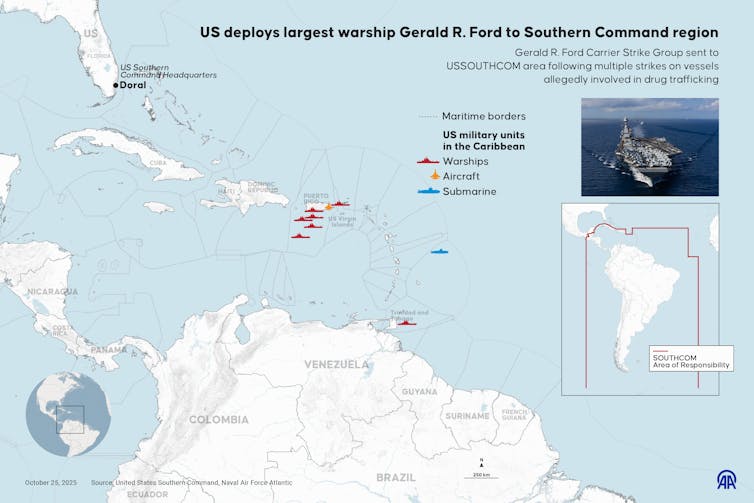
The puzzling drug angle
The boats that have been hit all had origins in, or connections to, Venezuela, and all were struck in the Caribbean Sea and in the Pacific north of Colombia, making the operation particularly puzzling. Venezuela is not a major producer of fentanyl or cocaine. The major cocaine trafficking routes are in the Pacific Ocean, not the Caribbean.
Typically, the U.S. Coast Guard stops vessels suspected of carrying illegal drugs in international waters. In 2025, the Coast Guard has interdicted a record amount of illegal drugs and precursor chemicals in the Caribbean. It is notable that the amount of methamphetamine precursor chemicals interdicted far exceeds that of fentanyl.
After interdiction, the Coast Guard typically begins a process that adheres to legal strictures, detaining the crew and eventually turning them over to a U.S. law enforcement agency.
But the Trump strikes have summarily killed most of the people on the boats and presumably destroyed any of the alleged illicit drugs. Many observers and legal experts have said the killings amount to murder.
Trump’s preoccupation with Venezuela
Trump has had a fixation with the Venezuelan gang Tren de Aragua for some time, adding to his administration’s focus on Venezuela.
The administration designated Tren de Aragua a terrorist organization in January, along with several other drug cartels. But the White House statement announcing the designation made no mention of any behavior or activity that would constitute terrorism.
Under U.S. law, terrorism is defined as politically motivated violence, usually targeting a civilian population, intended to bring about political change. The terrorist designation allows the government to pursue actions such as seizing assets and imposing travel restrictions on those appearing on the list of Designated Foreign Terrorist Organizations.
But the designation of a criminal gang with no clear political ideology or objectives mischaracterizes the group. That calls into question some of the White House’s motivations.
Then there’s the odd incident of the covert operation that wasn’t covert.
In early October, The New York Times reported that Trump had authorized covert operations in Venezuela and authorized the CIA to conduct “lethal strikes” inside the country.
Surprisingly, Trump confirmed that he had indeed authorized covert action. Yet the defining feature of a covert operation is that the role of the government is hidden.
Trump’s fixation on Venezuela goes back to his first term, when he also had Maduro’s regime in his sights. The administration eventually charged Maduro with leading the Cartel de los Soles – Cartel of the Suns – an informal criminal network tied to high-level Venezuelan military officials believed to have conducted drug trafficking into the U.S. The White House has also claimed that Maduro controls Tren de Aragua.
Independent observers assert that opposition leader Edmundo González Urrutia handily won the 2024 presidential election. The government-controlled National Electoral Council, however, declared Maduro the winner. If the White House has greater intentions in Venezuela, such as regime change, which some anonymous officials have suggested, Trump has tipped off Maduro to be vigilant.
Thorny issues
If the goal of the administration is interdiction of dangerous illicit drugs like cocaine, Colombia is a much bigger source. Venezuela acts mainly as a minor trans-shipment conduit rather than a producer.
In terms of mitigating the effects of drugs and narcotics in the United States, multiple studies over decades have found that measures taken to decrease demand in the U.S. rather than supply-side interdiction are more effective in reducing harm.
With little public information to suggest an overall strategy or objective, legal problems related to the maritime strikes become apparent.
Secretary of State Marco Rubio has said that the activities were a “counter drug operation.” But he went further in saying that instead of interdicting the boats, they would be blown up.
The method of interdiction and destruction of the boats and lives of those involved by a military strike presents problems, especially in terms of U.S. armed forces performing law enforcement duties. This would be proscribed by the Posse Comitatus Act, which prohibits federal armed forces from performing law enforcement activities.
As for actions targeting Venezuela, Trump has said he would not ask Congress for a declaration of war but would notify it of any ground operation.
The 1973 War Powers Act, which requires the president to notify Congress before hostilities and brief it afterward, would apply to this situation. But almost every president since its passing has ignored it at some point.
Though some Republicans in Congress have objected to the military actions so far, the Senate in early October voted down a resolution that would have prevented further strikes in the Caribbean.
The Trump administration continues to depict its activities in international waters as a military operation and the smugglers as enemy combatants. Most legal experts dismiss this and characterize the strikes as extrajudicial killings.
In reply to a flippant and profane response from Vice President JD Vance about the killings, Republican Senator Rand Paul wrote on social media, “Did he ever wonder what might happen if the accused were immediately executed without trial or representation?? What a despicable and thoughtless sentiment it is to glorify killing someone without a trial.”
If Trump and his advisers like Rubio and Secretary of Defense Pete Hegseth are taken at their word in scattered statements on the activities around Venezuela, many questions remain, such as why the boats are being destroyed and their occupants killed rather than interdicted.
Jeffrey Fields receives funding from the Carnegie Corporation of New York.
Read These Next
FDA rejects Moderna’s mRNA flu vaccine application - for reasons with no basis in the law
The move signals an escalation in the agency’s efforts to interfere with established procedures for…
Citizenship voting requirement in SAVE America Act has no basis in the Constitution – and ignores pr
The House has passed a bill to require proof of citizenship for voting. Although it likely won’t become…
How the 9/11 terrorist attacks shaped ICE’s immigration strategy
The growth of today’s aggressive immigration tactics traces back 25 years, when enforcement took on…


